República Federal Ibérica
Érase una vez 2012. Aquel año en que vivíamos una fuerte crisis económica, social, política y cultural, que causaba una incertidumbre asombrosa, yo me encontraba en Madrid, realizando estudios de postgrado en la Escuela Diplomática, rodeado de una generación magnífica de estudiantes y profesores de reconocido prestigio.
Hoy hace 30 años de aquello, y mucha gente, acostumbrada al ruido de la vida diaria, ha olvidado cómo sucedió todo: cómo dejamos atrás la crisis, cómo cambiaron las estructuras. Yo no, y por ello me gustaría compartirlo con todos vosotros.
Tras un convulso año I en el Gobierno de España, Mariano Rajoy y su equipo deciden emprender unas negociaciones muy ambiciosas a varias bandas, siendo la primera fase de las mismas en el más estricto de los secretos. En primer lugar, acuerdan con el principal partido de la oposición, el PSOE (por entonces el partido de centro-izquierda y cuyo heredero es el Partido Social Demócrata o PSD), una reforma constitucional profunda, que por una parte incluya una configuración territorial verdaderamente federal, con la inclusión de la reforma del Senado, entre otras cuestiones, (desde la Constitución de 1978 venía configurándose el llamado “Estado de las Autonomías”) y por otra arreglase la sucesión de la Corona (pues entonces el primer varón era quien reinaba y no el primogénito).
Sobre los pies que son manos. Un poco menos de ciencia y un poco más de soñar
El taller comienza con una afirmación: el estado onírico no se diferencia tanto de nuestro estado durante el resto del día. Constantemente vivimos a través de la expresión de nuestro inconsciente, aunque no nos damos cuenta… y, precisamente por eso, es el inconsciente el que habla.
– ¿Cómo? – tartamudeó esa chica, ante la pregunta de Pilar. Ése era el inconsciente. Se había ido a algún sitio, no estaba presente, pero estaba despierta, y tartamudeó.
Somos científicos, investigamos, y creemos que tenemos la razón -aunque ello no implique estar en posesión de la verdad-, y, de repente, nos damos cuenta de que es nuestro inconsciente el que habla. También habló cuando genios y artistas dieron con la solución a un problema entre sueños; cuando, inmersos en un proceso de búsqueda del que muchas veces no fueron conscientes, hallaron la respuesta de repente, pronunciaron “¡eureka!”, y hablaron de inspiración.
Así, comienza el taller. Expectativas: quizás la pintura automática; y pensamos orgullosos en los artistas Surrealistas, auto-máticamente excluidos.
Pero la ciencia puede ser liviana y ligera. El inconsciente colectivo es otro tema. Apunto la definición dada por Pilar en mi folio triste y doblado: suma de todos los inconscientes de todas las criaturas a lo largo de toda la historia. Levanto la cabeza. ¿Qué hacen esos 15 libros que tomé prestados de la biblioteca montando pila en mi cuarto? En mi cabeza tengo toda la información de la historia de la humanidad.
Lo inconsciente, a veces, funciona como una narración.
The Kurdish question: a view from the inside
When referring to the Kurdish people, it is important to consider two fundamental matters: first, they represent the largest stateless ethnic minority in the world (about 22 million people), and secondly that, as a population, they have survived for decades to policies of extermination, which makes its History the history of a resistance.
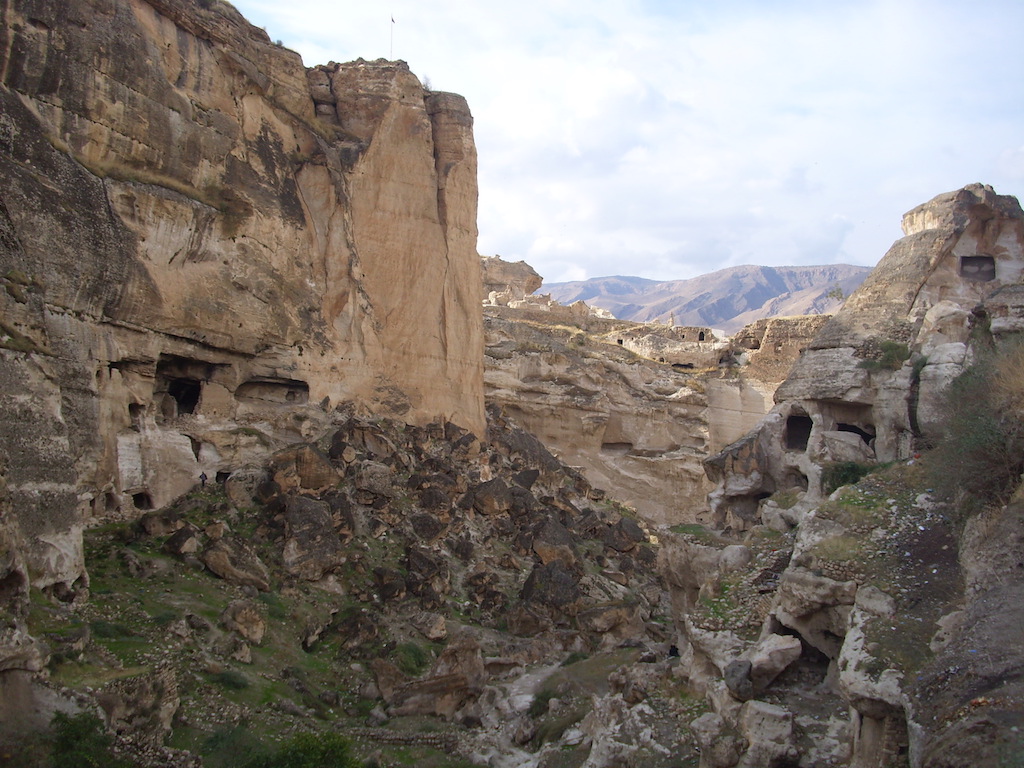
The Kurds settled in the space they currently occupy around 2500 B.C. The ancient Kurdistan is a region of Southwest Asia which includes territories belonging to different countries: Iraq, Iran, Turkey, Armenia and Syria. Most of the current population of Kurdish origin is settled in Turkey (approximately 15 million inhabitants), a country which, incidentally, is one of the most steely to act against this people.
Slavery in antiquity: any parallelisms?
Traditionally, slavery has been strongly criticized, owing to the fact that it is considered as the opposite to freedom. It is thought to be a life without any rights, a life in which you are not considered as a real person. Nevertheless, we do not really know (and we will never do) what the slaves thought, what they felt. All of us take for granted that those people had a hard life, but it is due to our current mentality (in fact, most of the historical films and novels show precisely that). We are educated in a way of life apparently characterized by democracy, freedom of expression and those kinds of things. Otherwise, in Antiquity mentality was quite different; two thousand years ago hardly anyone could imagine a society without slaves.
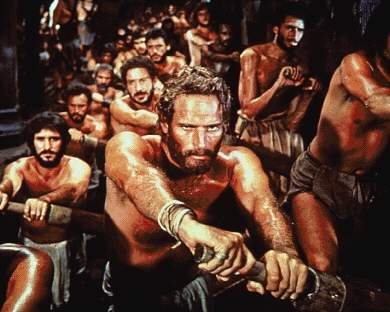
It is worth pointing out that history is never black or white, but grey. We simply have to reason in a logical way: masters invested a big amount of money in buying slaves; so mistreating them would have been a stupid choice. A person who does not eat, who does not sleep well, who is hurt, is not going to be productive. Furthermore, several times manumission could be a tragedy, because becoming a freedman implied to stop being supported. A pregnant woman, for example, could barely survive. There were, in fact, a great variety of labours for a slave. Mineworkers and gladiators were tough ones, but a slave could also be a tutor or an accountant.
Caminos separados
Por pura casualidad, estas elecciones presidenciales de Estados Unidos me han pillado repasando algunos textos de los principales teóricos y padres del liberalismo de los siglos XVII y XVIII a propósito de que ha caído en mis manos el libro de José María Lassalle, Liberales. Al margen de la muy interesante tesis que sostiene el actual Secretario de Estado de Cultura español -los orígenes del liberalismo se encuentran en la confluencia del humanismo renacentista y del puritanismo religioso en un individualismo virtuoso que dista mucho del individualismo egoísta con el que en ocasiones se le relaciona- recordar a los Padres Fundadores, y a los autores ingleses y escoceses que les influyeron, es muy pertinente en un día como hoy.
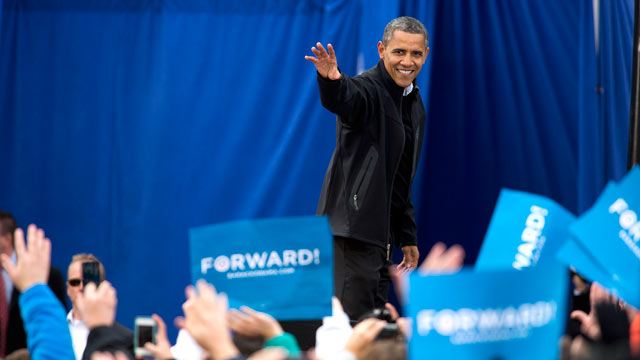
Los Estados Unidos de América han sido, y todo dice que seguirán siendo, un oasis de libertad y democracia sin igual. Lógico cuando su propio nacimiento fue un experimento de laboratorio llevado a cabo por científicos sociales que no sabían que lo eran, pero que desarrollaron de cero y en un escenario virgen las teorías liberales y republicanas que se venían publicando en Gran Bretaña desde que alrededor de John Locke y del conde de Shaftesbury se conformara el partido whig entre los defensores de la propiedad y la libertad de conciencia frente al absolutismo de los Estuardo.
Interviews with MEPs: Ioannis Kasoulides, EPP
“The EU institutions and the Member States need further accountability, parliamentary scrutiny and control, and for this the European Parliament and National Parliaments will certainly be invited to play an enhanced role. The European citizens demand more democratic legitimacy and their elected representatives will assume such legitimisation.”
Ioannis Kasoulides is a Cypriote politician, the Vice-Chair of the Group of the European People’s Party (the most voted in the latest elections to the European Parliament). In this interview, he shows us his party’s views about the present and future of the EU.

Catalonia and Spain: a new scenario. What about the EU?
The relation between Catalonia and the rest of Spain –basically the Central Government, in charge of the redistribution of the revenues- has historically been at odds. Nevertheless, the demonstration that occurred on 11th September could mean the beginning of something completely new, the independence of the Catalan region.
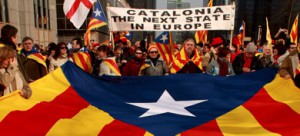
So many interrogates remain nevertheless. Would this be possible under the Spanish Constitution? It doesn’t seem the case. The article 92 of the Constitution says literally that consultative referendums can be held on “political decisions of special importance”, but only if the government and the Congress of Deputies approved it.
Interviews with MEPs: Nigel Farage, UKIP
“If I had the possibility of changing anything of the EU, I’d simply abolish it”
Nigel Farage is the leader of the UKIP (United Kingdom Independence Party), and co-president of the Europe of Freedom and Democracy Group in the European Parliament. Farage is well known because of his criticism of the European project in general and of the European Institutions in particular. Hereby you can find the interview he has kindly given us. If you want to know anything else about him, you can follow him on twitter.

-Could you tell us anything about your background? What are your studies?
Not very distinguished, I’m afraid – some decent secondary-school certificates – but my real education, as a young man, took place on the Stock Exchange, where I began as a junior trader and progressed to running my own brokerage-firm.
-How did you become a MEP? Was this an objective for you in your political career?
Interview with Alfonso Alcolea, Administrator at the Committee of the Regions
“I am quite pessimistic (about where the EU will be in the short-term future) because I think that the crisis to come are bigger than this one, and that we are not any more a ‘global player’ as our leaders like to say.”
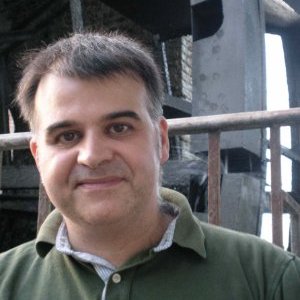
Alfonso Alcolea, since 2009, is an Administrator at the Committee of the Regions (the voice of regions and cities in the European Union), in Brussels. Obviously, his answers don’t represent the institution: they are merely personal views.
-Could you tell us something about your previous background? What are your studies?
I got a scholarship to study in EU Politics and Administration in the College of Europe in Bruges. Unfortunately my Region cancelled those scholarships a couple of years ago.
Classic Legacy in the Iconography of Catholic Monarchs: the Yoke and the Arrows
Traditionally, it has been defended that few Mediterranean cultures developed in ancient times are the cradle of modern civilization. The idea of the Athenian “democracy”, the heritage of the latin language, etc., are some of the most recurrent elements in this reasoning. However, we should give less importance to this affirmation. Current society presents a set of general characteristics configured after many centuries of history; moreover, regional and local variations must be added. Each period of the past has influenced, in one way or another, the fate of our civilization, and because of that it should be avoided to take into account only cultures and peoples that we consider the main ones. On the other hand, there are some cases, in which a deliberate act of recovery of elements of ancient times, specially Greek culture and the Roman Empire, took place. A good example is the iconography of Catholic Monarchs.
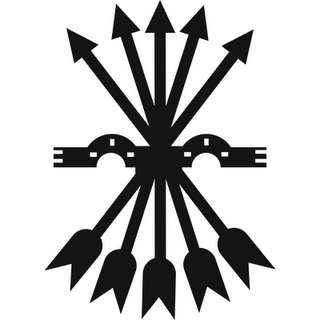
Isabella, sister in law of Henry IV of Castilla, officially reached the throne in 1479, after a civil war that carried on few years against the king’s daughter, Juana, known by her enemies as “la Beltraneja”. Shortly later, John II of Aragón died; the monarchical succession did not present any difficulty, and his son Ferdinand became the new king. Isabella and Ferdinand, married since 1469, had to reinforce their political position by means of using different mechanisms, among them the iconography. This was more urgent in the case of the queen of Castilla, owing to the fact that she had participated in a civil war.
Ente racional
“Si las personas definen las situaciones como reales, éstas son reales en sus consecuencias”, William I Thomas. Sociólogo estadounidense (1863-1947).

Esta frase expresa lo que entiendo por macroeconomía; es decir, un ente racional formado y a su vez condicionado por las conciencias individuales de millones de personas, que aspiran a obtener el máximo beneficio. Para ello, tratan de vislumbrar lo que acontecerá mediante previsiones propias y/o ajenas, y al hacerlo están, a su vez, condicionando el devenir.
Esto, que puede no resultar tan obvio, pues choca con la manera de pensar de muchos que creen que todo es cuestión de cifras y algoritmos complejos, es en esencia lo que sucede diariamente en los mercados. Dicho de otra forma, lo que ahora es un rumor mañana puede ser una realidad. ¿Por qué sucede esto? Debido a que en los mercados no hay confianza. Confianza, palabra que antes al usarse en referencia a países del primer mundo se daba por sentada, y que en realidad, ahora solo es una quimera. Fenómeno natural, pues si se nos ha engañado una vez, nos es casi imposible volver a confiar. Y esto, engañar, es el deporte nacional en nuestro país, desde un ex presidente que negaba la realidad, hasta un presidente que ha hecho todo lo contrario a lo que prometió.
Euro 2012: El impacto de la victoria de España en la economía real
Este artículo fue publicado en primer lugar en Passim, blog de asuntos internacionales.
En medio de una tempestad continua, que no parece tener fin, de nuevo la selección española ha sido un oasis en el desierto. Una selección que parece empeñada en proporcionar al país un mes de emociones, sentimientos y sonrisas cada dos años, al menos desde que comenzó este calvario en forma de crisis allá por 2008. ¿Terminará dicha crisis algún día? Sí, como la racha de la selección. Todo tiene un principio y un final en la vida, a pesar de que nuestros políticos parezcan esforzarse por lo contrario.
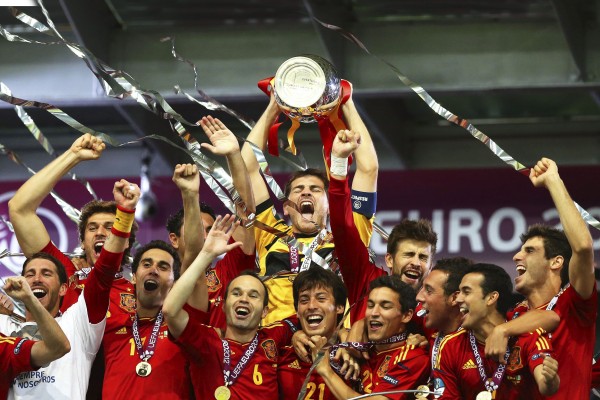
Pero la cuestión que aquí nos planteamos es si, además de esas emociones incuantificables, podríamos encontrar algún patrón que nos mostrase que, en la economía española, esto ha servido para alguna mejora, aunque fuese de tipo temporal.
Ya en la Euro 2008, el primer éxito internacional español desde los tiempos de Marcelino (1964),Mastercard realizó un estudio en el que señalaba que la victoria de España haría que la economía del país se beneficiara por una cuantía de unos 90 millones de euros, además del “impacto positivo a la economía que se resultará de la mejora en la confianza de los consumidores”.